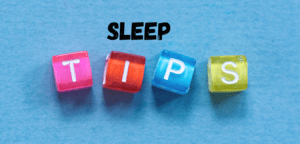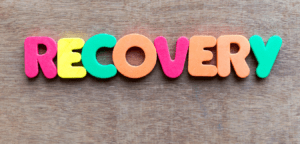Parents are natural caregivers, supporters, and helpers in times of need. Most often, parents want to help their children succeed in school, purchase the things they want to buy (but maybe can’t afford), and go the places they want to go. Parents are advocates and aides for their children inherently. When a child develops a drug problem, however, this “helping” becomes harder to do, and also harder to define. What is typically a well-meaning impulse often backfires for parents of addicts – as sometimes, “helping” an addicted son or daughter becomes “enabling” inadvertently.
There is a fine line between helping and enabling someone with a drug addiction. Helping, by definition, means “being of benefit to,” “improving a situation,” or doing something in someone’s best interest. In the case of addiction, this could mean talking openly about your son or daughter’s drug use, intervening early, and seeking professional help. Enabling, in contrast, means “making possible,” or giving someone the means to do something. This could involve giving your son or daughter the car, or money to go out to eat, or ignoring the subject of addiction altogether. In essence, enabling happens when a parent provides help to their loved one, who should (and is able to) handle the task on his or her own. This “assistance” makes it easy for the addicted person to continue drinking and using drugs.
If you believe you may be enabling your child’s addiction, you are not alone. Enabling is a very easy habit to slip into unintentionally, as it is often disguised by well-intended actions that you feel may benefit your child at the time. As a parent, it is important to know that this is not deliberate nor is it your fault. And by knowing the signs of enabling, you will be able to truly help yourself and your child.
Common Signs of Enablement
- You ignore your loved one’s negative or potentially dangerous behavior – This may include overlooking their substance use, or even doctor-shopping habits, downplaying the magnitude of the issue, or even denying that a problem exists. You may choose to actively look at the positive things your son or daughter is doing, and subconsciously forget about the negative aspects of his or her lifestyle.
- You ignore your loved one altogether. Rather than choosing to confront your loved one about his or her drug use, you may choose to stay clear of it. This might mean avoiding talking with your son or daughter, or avoiding your child when he/she comes home high.
- You make excuses for your son or daughter. Do you clean up after your loved one’s messes, literally and figuratively? Do you defend your child in difficult situations, such as when you lie or cover for your son or daughter, when he/she is too intoxicated to go to work or a family party? An enabler will make excuses to keep the peace, to shield off potential consequences, and to give off a calm, collected façade in front of others.
- You put your child’s needs before your own. This is a tricky one, because it’s something parents inherently do. While it is natural to want to help your son or daughter, it is important to still think about your own, personal needs. Have you neglected your own mental and emotional health, with time spent covering for, providing for, and taking care of your child, when he/she is capable of doing things on his/her own?
- You have difficulty expressing your emotions. A tell-tale sign of enabling is when a parent is unable or unsure how to express their feelings, especially if negative repercussions are involved. Do you feel afraid to talk to your child about the issue, in fear it could damage your relationship? Are you scared of how he or she might react? Maybe you are scared to speak with a professional counselor, in fear of the stigma surrounding addiction and drug rehab today. This is called fear-based enabling – you avoid addressing the problem directly, in fear of the conflict it may create.
- You blame yourself, or others, or other situations, but never your child. Being a parent, you may blame yourself for your son or daughter’s drug use. You may blame his friends, her college, the neighborhood. You may place the blame elsewhere, in efforts to protect your child from the stigma and shame that addiction often bears.
- You financially support your son or daughter. Rent, gas, groceries, laundry. These are just some of the many items that a parent wants to cover for their child, especially during tough times. If you are supporting your child financially in any way, it is another clear sign of enabling – this financial backing makes it easy for your child to continue spending money on drugs and alcohol.
Perhaps the most common sign of enabling of all is enduring your child’s drug addiction. If your son or daughter is just a teenager or college student, you may think that their drinking or drug use is just a phase. You give it time. You wait it out. You say something, but you don’t act. You don’t pick up the phone. You don’t have an intervention. You may put it off in hopes things will get better. Your loved one may ask for some more time to turn things around – to get a job, to apply to college. You may give just that. This is called hope-based enabling, and is one of the most familiar types of enabling among parents. In order to help your child, though, you must begin to take a new step forward.
How to Stop Enabling Your Child
First off, it is important for you to know that enabling can be stopped at any time. It is a cycle, but it is a cycle that can be broken. You can help your child by encouraging him or her to be productive, to be purposeful, and to be practical and rational in all that he/she does from this point onwards. How?
Although it may not feel right, and it may even feel painful at times, you must learn to allow your child to feel the consequences of his or her actions. If your child is out of cash, out of a job, or unable to go to an important event because he is “coming down” from drugs, think of it as an opportunity. Let your child realize the problem at stake. You must let your loved one bear the consequences to help him/her realize the truth, and to find reason to change. You must let your loved one learn from his/her actions.
If you feel yourself enabled, ask yourself: “If I do this for my child, what will (s)he learn from the experience?” If you enable your child and bail him/her out of a situation, what will he or she learn? This will simply prevent him or her from feeling the need to make a change. As Lauren Springer, MSW, a clinical social worker at Turnbridge states, “By nature, individuals suffering from addiction look at the external forces or reasons for their circumstance, rather than looking inward. Is this truly what you want the lesson to be?”
As a parent, you can also stop enabling your child through actions such as:
- Do not clean up after his or her (situational or physical) messes. This means not finishing his/her chores, not bailing your child out of difficult situations, and not covering for your child when things get tough.
- Think about your own mental health, and how enabling a situation might affect you both short- and long-term. If your loved one is already in treatment, take time to get the right professional help or counseling for yourself.
- Follow through with plans and ultimatums. Do not make empty threats to kick your child out of the house, but instead, recognize and take action when it’s time to take this step. You may make plans to send him/her to a youth-only, residential drug treatment center, where he or she can get the proper help in safe, sober surroundings.
Credited to: Turnbridge










